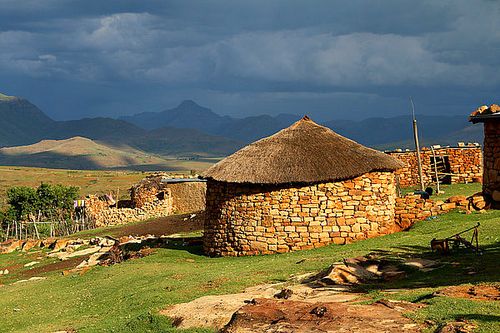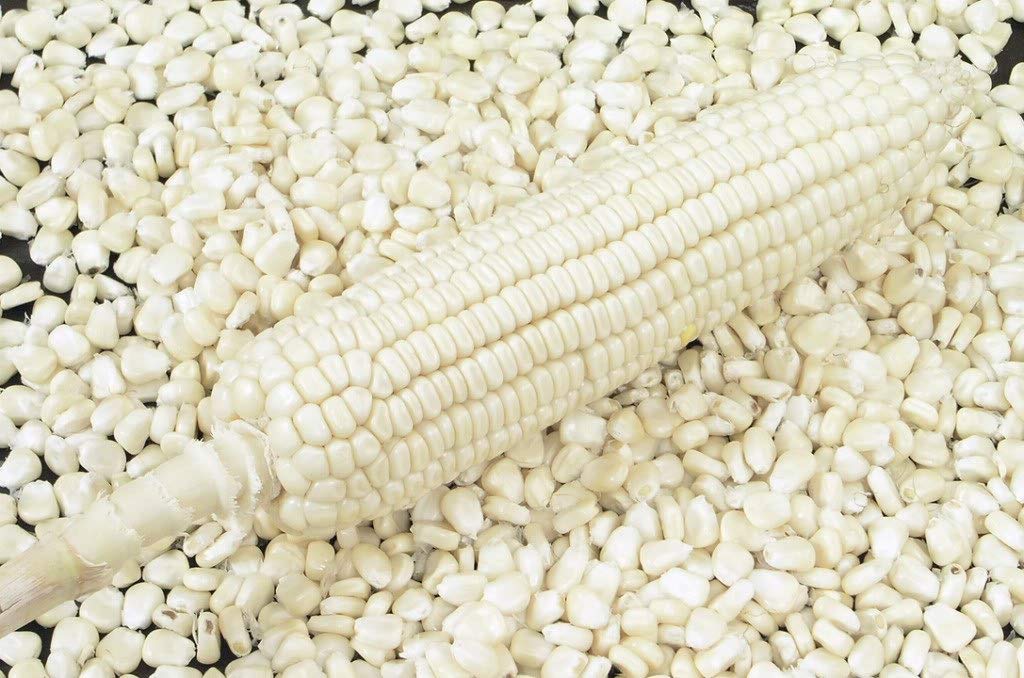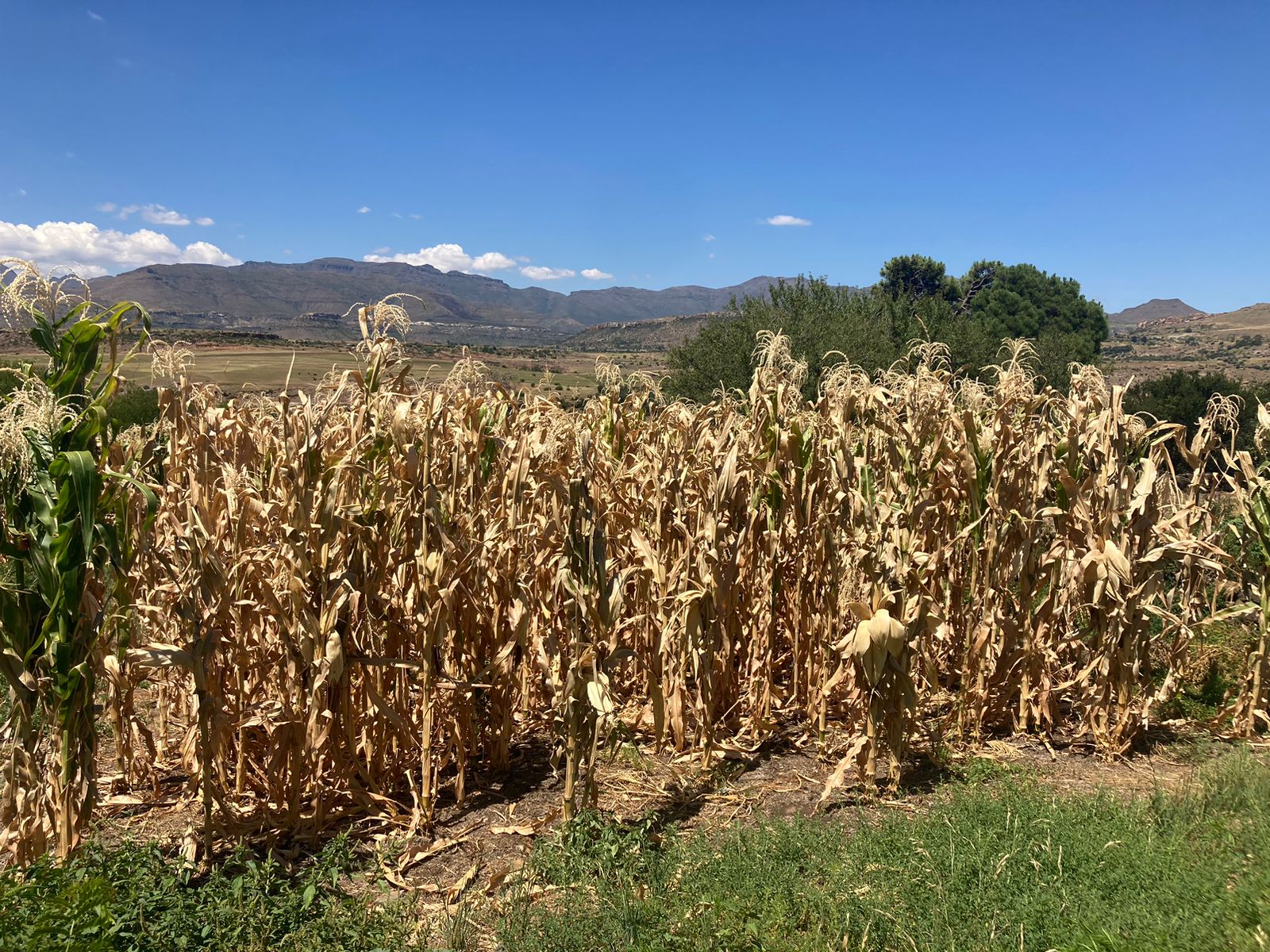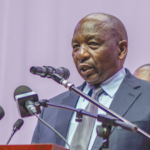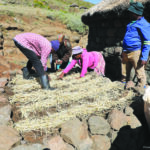Ntsoaki Motaung
Lesotho is teetering on the edge of a humanitarian catastrophe, World Vision Lesotho (WVL) warned this week.
This alarming announcement follows Prime Minister Ntsokoane Matekane’s declaration last Friday of a national state of food insecurity disaster, as the country grapples with the most severe El Niño-induced drought in a century.
“This crisis, unfolding in the shadow of global attention, threatens the very fabric of Basotho communities,” WVL stated. “The scale of this disaster is overwhelming. Across Southern Africa, 40 to 80 percent of the maize crop has been lost, but the impact on Lesotho is particularly devastating.”
The numbers paint a grim picture.
“An alarming 700,000 Basotho—nearly one-third of the country’s population—now face severe food insecurity. This marks a distressing increase from 582,000 just a year ago, highlighting the rapidly deteriorating situation,” WVL added.
World Vision, an ecumenical Christian humanitarian aid, development, and advocacy organisation, works with communities, donors, partners, and governments to create opportunities for better futures for vulnerable children and families in nearly 100 countries.
In its statement this week, WVL highlighted the adverse effects of climate change in Lesotho, which have led to increased frequency of extreme weather events such as droughts, soil erosion, and reduced soil fertility. These factors significantly impact livelihoods, incomes, food security, and the country’s agriculture-based economy.
Food insecurity persists as a significant challenge, disproportionately affecting vulnerable groups such as children, women, individuals living with HIV/AIDS, persons with disabilities, unemployed youth, and rural dwellers.
“The consequences of this drought reach far beyond empty fields. Families are being torn apart as people migrate in search of better opportunities, heightening their vulnerability and susceptibility to human trafficking,” WVL said.
Children are dropping out of school, their futures hanging in the balance as malnutrition rates soar. The health system, already strained, is buckling under the weight of increasing illness and desperation.
Water sources are drying up, leaving communities without this most basic necessity for survival. The economic impact is equally severe, with food prices skyrocketing and livelihoods crumbling, pushing even more families into the abyss of poverty.
“In the face of this unprecedented crisis, World Vision Lesotho is launching a multifaceted, urgent response that addresses immediate needs while building long-term resilience. Our strategy is rooted in the understanding that this is not just a food crisis, but a complex emergency that requires a holistic approach,” WVL stated.
At the forefront of its response is the rapid deployment of emergency food aid. “Teams are working around the clock to reach the most vulnerable communities, providing life-saving nutrition to those on the brink of starvation,” WVL said.
“Alongside this, we are implementing critical water and sanitation interventions. Clean water is not just a necessity for drinking, but crucial for maintaining hygiene and preventing the spread of diseases that could further devastate weakened communities.”
Recognising that short-term aid is not enough, WVL is simultaneously rolling out sustainable agriculture initiatives through its Environmental Sustainability and Climate Action program.
This includes the introduction of drought-resistant crops and innovative irrigation systems designed to withstand the harsh realities of a changing climate.
“We’re not just helping farmers plant crops; we’re helping them reimagine agriculture for a more resilient future,” WVL emphasised.
“Our response extends beyond the fields. We’re bolstering local healthcare facilities, equipping them to handle the surge in malnutrition cases and drought-related illnesses. This includes providing essential medicines and training healthcare workers in remote areas.”
In a televised address last Friday, Prime Minister Matekane stated that the country requires M1.2 billion to tackle this urgent crisis of food insecurity.
He announced that the declaration of the state of disaster will lapse on March 31, 2025, and called on aid organizations for assistance. The government has allocated M200 million to help address the situation.
A Call for Immediate Action
WVL stressed, “The situation in Lesotho is nothing short of dire. Every day that passes without action means more lives at risk; more futures jeopardised.
We call on the global community—governments, organisations, and individuals—to recognise the gravity of this crisis and act now. Your support can mean the difference between life and death for hundreds of thousands of Basotho.”
“This is more than a food crisis; it is a fight for the future of an entire nation. The drought in Lesotho lays bare the devastating reality of climate change and the urgent need for global action. As we respond to this immediate crisis, we must also commit to addressing its root causes, working towards a world where such suffering becomes a thing of the past.”
“The time for action is now. Join us in this critical mission to save lives, rebuild communities, and forge a path towards a more resilient and sustainable future for Lesotho. Together, we can turn the tide of this catastrophe and help the Basotho people not just survive but thrive in the face of adversity.”
Summary
- This alarming announcement follows Prime Minister Ntsokoane Matekane’s declaration last Friday of a national state of food insecurity disaster, as the country grapples with the most severe El Niño-induced drought in a century.
- Our strategy is rooted in the understanding that this is not just a food crisis, but a complex emergency that requires a holistic approach,” WVL stated.
- He announced that the declaration of the state of disaster will lapse on March 31, 2025, and called on aid organizations for assistance.

Your Trusted Source for News and Insights in Lesotho!
At Newsday Media, we are passionate about delivering accurate, timely, and engaging news and multimedia content to our diverse audience. Founded with the vision of revolutionizing the media landscape in Lesotho, we have grown into a leading hybrid media company that blends traditional journalism with innovative digital platforms.


